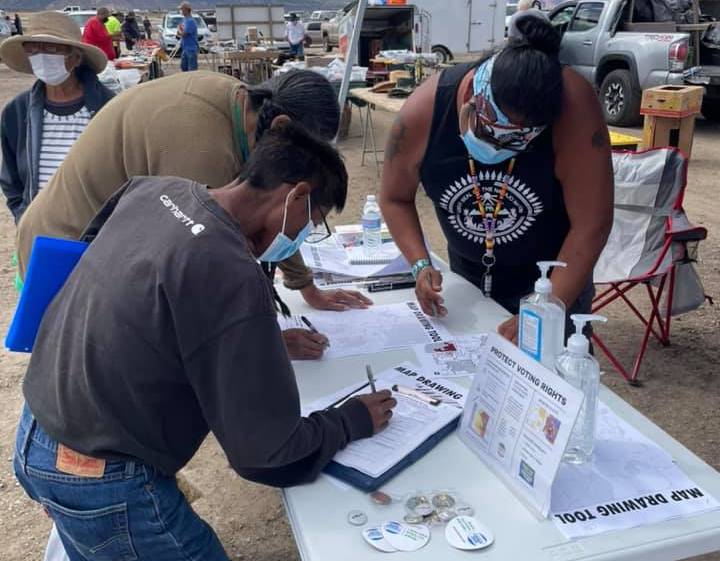
- Details
- By Judith LeBlanc
Guest Opinion. Native communities already experience obstacles to voting, from language barriers and lack of polling places on reservations to state laws which do not recognize Tribal identifications or accept reservation addresses that sometimes do not include house numbers or even street names.
The U.S. Government should be focused on ways to expand access to voting, but recently the U.S. House passed legislation that does the exact opposite. The so-called Safeguard American Voter Eligibility (SAVE) Act would require all voters to prove their U.S. citizenship when registering to vote or updating their registration. If this passes the Senate, even if you already have a government-issued ID like a driver’s license or Tribal ID, you’d still need a passport or birth certificate that matches your ID exactly before you could register to vote or update your voter registration.
The SAVE Act would disenfranchise millions of U.S. citizens who don’t have a passport or a birth certificate matching their legal name (including married women and transgender or two-spirit people). It would disproportionately harm Native voters, especially Indigenous elders, who are much less likely to have passports or birth certificates and instead rely on Tribal IDs, which don’t usually include one’s place of birth.
And if this bill passes, you would no longer be able to register to vote online or through the mail. Instead, this bill requires in-person registration, creating a significant additional barrier for Native peoples. Already, polling places are too few and too far from reservations and other Native communities; finding places to register to vote is even harder and could involve driving hundreds of miles.
We work to turn out the Native vote and have record turnouts as a result. Now, think about the impact of this bill.
The law targets anyone who might not have proof of U.S. citizenship papers readily available: Tribal citizens, naturalized citizens, elderly voters, and people living in rural areas without easy access to documents.
As many as 140 million eligible voters don’t even have a passport and millions don’t have access to their birth certificate. It’s estimated that as many as 69 million women do not have a birth certificate matching their legal married name. Many, if not most, people who identify as transgender or two-spirit do not possess a birth certificate reflecting the name they use either.
A Brennan Center study found that communities of color would be disproportionately affected, finding that 11% of voting-age citizens of color are unable to readily access proof of citizenship, while 8% of white U.S. citizens are in the same situation.
The SAVE Act is nothing more than a ploy to silence whole communities. It’s a modern day poll tax.
If Republicans succeed in passing this bill, it will be a step back to the days of Jim Crow, where the rich and powerful controlled elections and millions of voters of color were locked out of the democratic process.
Judith LeBlanc (Caddo), executive director of Native Organizers Alliance Action Fund, whixh is a partner to Native Organizers Alliance.
More Stories Like This
The Lie We Keep Telling About Wounded KneeAnother Weapon of Mass Destruction
Colorado cannot heal until it confronts Sand Creek honestly
Native American Mothers Deserve to Live
Technology Rooted in Tradition is Strengthening Cherokee Nation
Help us defend tribal sovereignty.
At Native News Online, our mission is rooted in telling the stories that strengthen sovereignty and uplift Indigenous voices — not just at year’s end, but every single day.
Because of your generosity last year, we were able to keep our reporters on the ground in tribal communities, at national gatherings and in the halls of Congress — covering the issues that matter most to Indian Country: sovereignty, culture, education, health and economic opportunity.
That support sustained us through a tough year in 2025. Now, as we look to the year ahead, we need your help right now to ensure warrior journalism remains strong — reporting that defends tribal sovereignty, amplifies Native truth, and holds power accountable.
 The stakes couldn't be higher. Your support keeps Native voices heard, Native stories told and Native sovereignty defended.
The stakes couldn't be higher. Your support keeps Native voices heard, Native stories told and Native sovereignty defended.
Stand with Warrior Journalism today.
Levi Rickert (Potawatomi), Editor & Publisher

